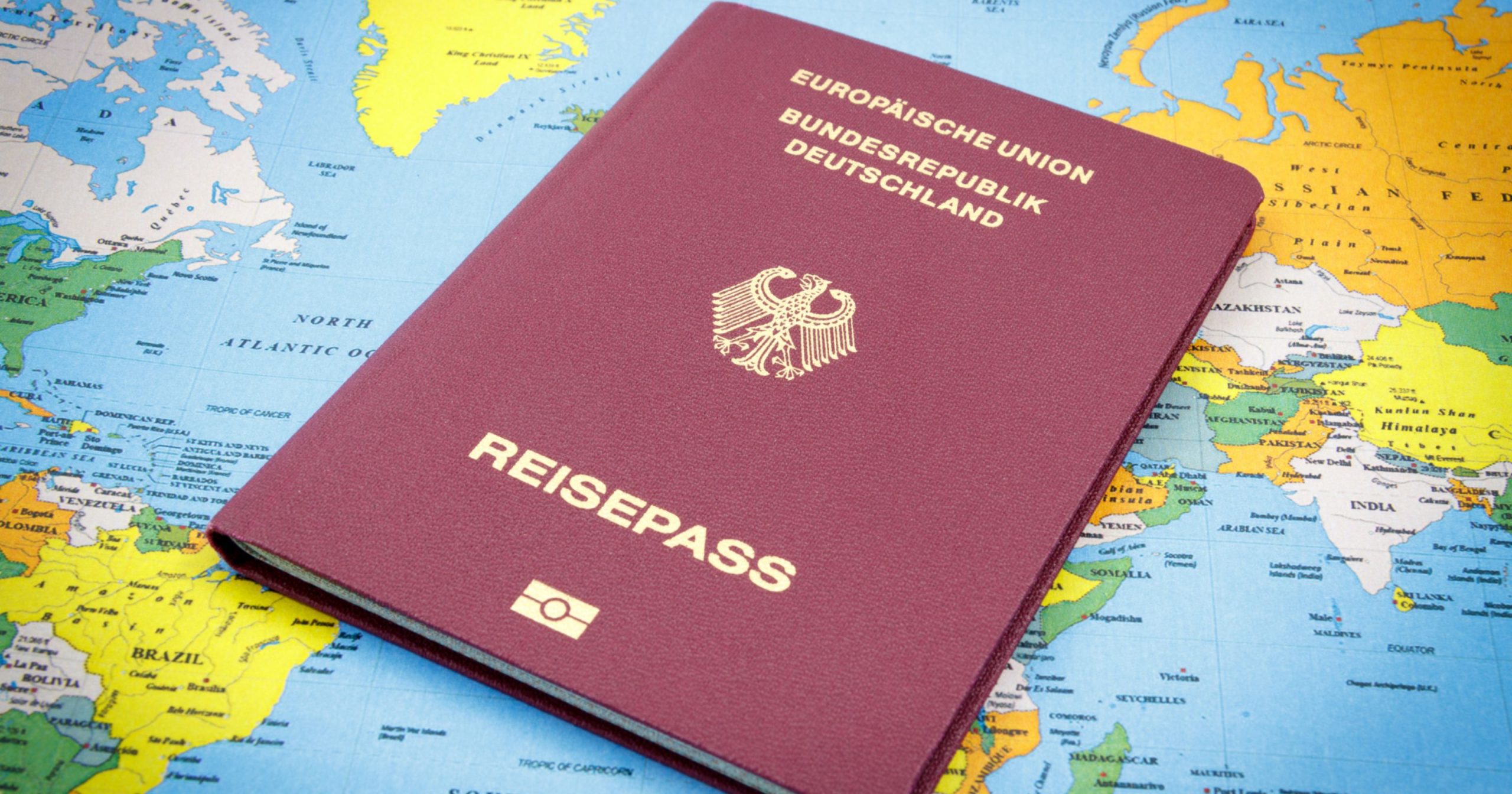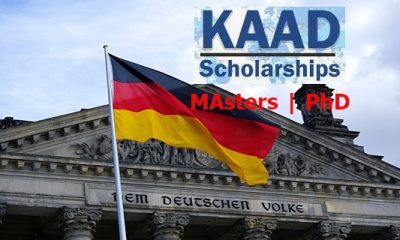Visa
German Permanent Residence For International Students

Germany is a popular destination for immigrants due to its rich culture, innovative technology, work possibilities, and academic growth. The country consistently ranks fifth in global popularity and is a strong higher education challenger. Thus, most students who complete their Masters or PhD from major German universities choose Permanent Residence or PR.
What is Germany Permanent Residence?
German Permanent Residence Permits allow non-EU and non-EEA citizens to stay in Germany indefinitely. The Settlement Permit (Niederlassungserlaubnis) is only awarded to persons who have lived and worked in the country for at least four years.
Because of its many benefits, most people apply for a Permanent Residence permit immediately after meeting the requirements. A PR permit holder can get German social security payments and not renew their residence permission every few years, among other privileges.
You can apply for a PR Permit if you are:
- A skilled worker with a foreign University degree
- A skilled worker with a German University degree
- Self-employed
- Family of a German national
- Asylum seeker or Refugee
Types of German Permanent Residency?
Following are the types of German permanent residency.
Student Residence Permit
- This type of permit is for international students who has enrolled in Germany school and university. For this, a student needs to provide the proof of their admission and availability of financial resources. This allows you to stay in Germany and do work as a student for certain hours.
Job Seeker’s Permit
- Individuals who want to work in Germany must obtain this type of authorization. It allows them to stay in Germany for an additional 18 months while looking for work. You will be required to give proof of your job search and financial situation. This can also be used after you have completed your study in Germany.
Employment Residence Permit
- This type of permit is valid for people who have a job in Germany and it is given based on your job duration/contract. For this, you need to provide a proof of work visa and job contract.
Residence Permit for Family Renuncification
- This permit is for foreigners who have their family in Germany. However, the family members should provide proof of their relationship with the applicant and guarantee that they can support them financially.
Permanent Residence Permit
This type of residence permit is for individuals who are living in Germany but fullfill the following reasons.
- Have been living in Germany from at least 5 years (3 years in case married to a German citizen.)
- Provide proof of employment, financial resources, and German language proficiency.
- Are an international student who has graduated from German university and holds 2-years work related permit.
EU Blue Card
This residence permit is valid for a maximum of four years. It is intended for international applicants who have a work visa, proof of financial resources, and particular language requirements.
Note: In Germany, an individual receives neutralization—a certificate of citizenship that serves as proof of German citizenship if their application is successful. This qualification can take up to two years to obtain.
Benefits of a Germany PR
Following are the benefits of German PR’s for International individuals:
- It helps the individuals work in Germany without any restrictions. Any gainful employment opportunity is permitted with a German permanent resident.
- It helps earn better credit rating for procuring future loans, etc.
- It acts as a travel permit and allows the free movement within erozones.
- Helps get the EU permanent residence permit.
- Helps get guaranteed social security.
- With this you can apply for financial aid to study in German universities.
- Helps you become a German national.
Next, let’s check out the requirements to initiate the PR process in Germany.
Requirements for PR in Germany after Study
The PR in Germany after study requirements vary not only with respect to your current residential status but also with respect to the requirement itself. Therefore, notwithstanding the specifications, the common Germany PR requirements are:
Completed application form:
The first and most important Germany PR requirements is submitting a completed form “Antrag auf Erteilung der Niederlassungserlaubnis” or settlement permit.
Biometric Photo:
You need to submit one recent 35mm x 45mm biometric photo. You can get this picture at any Fotofix booth located in U-Bahn stations around Germany.
Proof of Financial Stability:
The most important requirement in the German PR Process of Application is Financial Stability. As a graduate living in Germany, you must earn enough to support yourself without relying on public funds. As proof, bank statements must be disclosed when applying for PR. Students may also be required to provide employment records and employment contracts.
Valid Passport:
You must have a valid passport that does not expire in the next three months after the application date.
Proof of Housing:
You must have an ample amount of space to live in a safe and friendly neighborhood. For proof, you must submit:
- A lease agreement from your landlord or
- Certificate of Registration of Address.
Proof of Contributions to Social Security Funds:
- During your time of working and residing in Germany, you must have contributed monetarily to the Statutory Pension Insurance Fund.
Health Insurance:
You must have sufficient health insurance while applying for PR after study in Germany. Proof can be provided by:
- Submitting the confirmation document of your Statutory Health Insurance, or
- Submitting the insurance policy and proof of payment from your Private Health Insurance.
Proof of Education in Germany:
If you are applying for a PR in Germany after masters, or after completion of a degree in a German university, you must provide proof through:
- Academic Transcripts
- A copy of your degree or academic title from a recognized German higher education provider. The degree must show the level of the academic title received between bachelor, master, PhD, and diploma.
Proof of employment:
If you are applying for PR after studying in Germany, proof of employment is essential. That can be provided by
- Releasing salary statements for the last 6 months.
- Proof of employment through a Certificate of Employment issued by your employer in the last 14 days
- Proof of employment for the last 2 years.
Proof of paid pension insurance:
- You also need to have a paid pension insurance plan covering a minimum two-year period. This certificate must reflect paid private or statutory pension insurance.
Proof of Germany Proficiency:
- Eligibility for PR in Germany largely depends upon sufficient knowledge of the German language. Therefore a B1 level of Proficiency is a must for applicants.
Pass the ‘Life in Germany’ Test:
- The Life in Germany test will evaluate your knowledge of German laws, customs and culture and is essential for your application.
Not have a criminal record:
- You must declare any convictions in the past.
Next, let’s check out the steps to initiate PR process for Germany.
How to Apply for PR in Germany: Step-Wise Germany PR Process
So now that you have all the requirements for PR in Germany in order and have sufficiently fulfilled all the eligibility criteria let us find out how to apply for PR in Germany.
Germany PR process for Indian is quite simple and can be done through the following steps:
- Make an appointment with the German Immigration Office for the purpose of a PR application Germany.
- Pick up the application form and carefully read it. Check that you have all of the required documents. The documents required with the application are the same as those listed in the requirements section above. Aside from those, there may be extra documents that you must submit, so check the official website.
- On your appointment date, arrive at the Immigration Office in advance and be prepared for an in-person interview with a German official, as well as a review of the documents and the application form submitted.
- The final step is the payment of the application fee. The fee differs on the basis of your current residential status:
- For skilled workers (with and without a German University degree), the fee is 113 EUR.
- For self-employed individuals, the fee is 124 EUR.
The application processing for a PR in Germany takes around two to four weeks, upon which you will be notified of either your acceptance or rejection. If your permit is accepted, you will be allowed to stay in Germany for as long as you desire.
NOTE:
If your permit is rejected, you are allowed to apply again only after rectifying any previous mistakes.
After reading this blog, we hope you have a better understanding of the PR process and eligibility in Germany. Living in Germany after finishing your education can be a wise decision for a variety of reasons. The country’s quality of life and opportunities for progress are unrivaled.
FAQs
- How to get Germany PR for International students?
A PR in Germany for International students is only available after they have completed their education and have worked for at least two years (for those with a German University degree) or four years (for those with a foreign degree). Besides that, the application process, as well as the requirements, are the same as mentioned above.
- Can I get PR if I buy property in Germany?
Buying property alone cannot grant you a PR. It is also a clear violation of Germany PR rules. However, having a PR permit will allow you to buy property in Germany.
- What are the benefits of Germany PR after study?
There are plenty of benefits of Germany PR after study, including no restriction on movement within the EU, no difficulty in changing jobs, ability to hold property, access to German social security, etc.






















